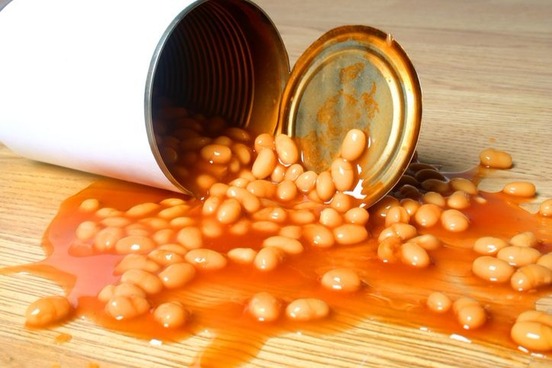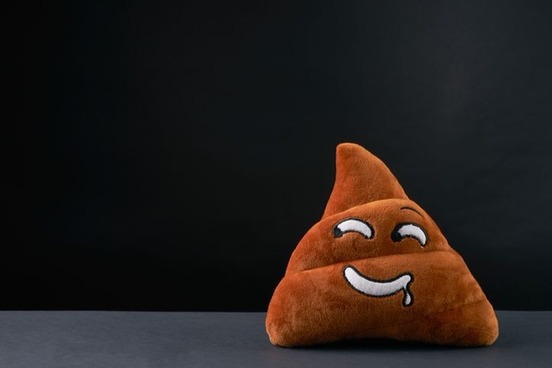
Skinny
We don't have any big news about the history of skinny, meaning "inside information," since evidence of its origin is thin; however, we suspect that it originated in American nautical slang.
Midshipmen at the U.S. Naval Academy in Annapolis, Maryland, would use skinny to refer to the subjects of physics and chemistry, although it's not clear just how this use might have been translated into the "information" sense. It could be that skinny, as originally used, was meant to suggest straight, unembellished facts, stripped of any padding or, if you will, verbal "fat." In any case, this use of skinny continued to gain weight in the language, and it occurs commonly in speech and, to a lesser extent, in writing.

Dope
In 19th-century America, dope was a general term for various thick or pasty preparations or mixtures, such as face cream and a lubricant for skis. At the same time, dope was also used as a slang term for "medicine." The "narcotic" sense of word was yet another late 19th-century slang application, sometimes referring specifically to opium, which in the form of a syrupy liquid was used for smoking. (Opium had also long been used figuratively for anything with a narcotic effect.)
The precursor of all these senses of dope is a Dutch word, doop, which means "sauce," and dope has been used dialectically in English for ice cream topping—and gravy too.
In the late 19th century, racehorses were sometimes administered a substance—referred to as dope—to either improve or impair their performance. It's likely that the "inside information" sense of dope originated from bettors inquiring about the condition of the doped horses in upcoming races. Dopesheets and dopebooks were eventually made available to everyone at the track, although they just gave the past records of the horses. Today, people also peruse "dope stories."
White House intrigue is as old as the White House and nothing excites a White House correspondent like gossip and tattle. Tales are spun in what the trade calls "dope stories," as in inside information, but only a dope believes everything he reads. Dope stories are rife with anonymous sources, and such sourcing is sometimes necessary but it's difficult for a reader to know what to make of the dope.
— The Washington Times, 17 Apr. 2017

Spill the beans
The phrase "spill the beans" implies divulging information indiscreetly. The verb spill had been used figuratively as early as the 16th century to mean "to divulge or pass on information." It did so, however, without the sense of indiscretion that "the beans" has imparted to "spill the beans." In other words, when you spill the beans, it is usually a "insert-foot-into-mouth" moment, whereas when you're told to "spill it," you're usually coerced into it.
The phrase originated in the U.S. as a slang expression in the early part of the 20th century, and the use of beans is a bit puzzling. In this phrase, they represent valuable—or at least desirable—bits of information, while in most English idioms the bean is a measure of worthlessness: "He doesn't know beans" or "It isn't worth a hill of beans," and so forth. The simplest—and rather uninteresting—explanation is that "the beans" is a nonsensical filler.
A bit more interesting is that early print evidence occurs in horse racing or baseball.
Ethylene was 15 to 1 one day and would have won sure had Battiste been up. He was set down by the starter in St. Louis and I had to ride a bad boy. Then we put Battiste up later and got down. Kiley told him to take her back a bit. He did, and in some manner the field ran around and over her so that she was shut in, cut off and lost. So the beans were spilled.
— The St. Louis Republic, 25 Nov. 1902At this point the game began to get interesting, as Logan was just two scores behind, and we're beginning to find Farrow's delivery with ease, but the "beans were spilled" in the eighth when Jones, who played sensational ball all during the game, erred on Murphy and Kelley, first two up....
— The Democrat-Sentinel, 29 Aug. 1907
In short time, it was used outside of sports with the connotation of causing a different kind of upset—one caused by revealing secret information.
Finally Secretary Fisher, of the President's cabinet, who had just returned from a trip to Alaska, was called by Governor Stubbs to the front, and proceeded, as one writer says, to "spill the beans."
— The Van Wert Daily Bulletin, October 1911
"Spill the beans" was also once a favorite cliché among writers of detective stories, in which it appears in statements like "Wilson, in a moment of weakness, spilt the beans." That use is most familiar today, and people often use it informally when they want someone to reveal information about something meant to be a surprise.

Tip
Tip first appears as a slang word for exclusive information or advice in the 16th century. The word was also used as a verb meaning "to touch lightly" or "to tap," and etymologists theorize that the notion of tipping the arm or elbow of a person to surreptitiously get their attention may have influenced its "information" sense. By the 19th century, tips often concerned advice on betting or on business speculation.
It should be the first duty of consuls to keep the Foreign Office promptly supplied with every commercial "tip" that can be of use to British trade.
— Quarterly Review, 1886
The verb tip was also used in thieves' cant for acts of giving or passing on something, as in "tip me that cheat" (meaning "give me that thing"). Often the "thing" tipped was money, but it wasn't the only thing. Beneficial information and advice were also "tipped," leading to the expression "to tip the wink."
She write love letters to the youth in grace; nay, tips the wink before the cuckold's face.
— The Sixth Satire of Juvenal, translated by John Dryden, 1692
The "giving" sense of the word eventually extended to the common practice of giving a gratuity after a service rendered, and by the 18th century, tip applied to the gratuity itself.
Did he tip handsomely?—How much did he come down with?
— John Gay, The Beggar's Opera, 1728

Poop
Yeah. We know.
The 1911 issue of Howitzer—the yearbook for the U.S. Military Academy at West Point, New York—defines poop as "a speech; a thing to be memorized." That sense of poop was extended to include information in general.
"Sir, it's after ten and they want briefing poop and bomb loads."
— William Wister Haines, The Atlantic, November 1946
Another military term is poop sheet, the name for a written set of important announcements and instructions. Supposedly, the poop sheet was sometimes read at the mess hall from the poop deck (a balcony).
Nearly every command dutifully and periodically issues a poop sheet stressing the importance of conserving clothing and equipment.
— Infantry Journal, June 1945
By mid-20th century, civilian reporters were also applying poop to any news, as well as to confidential information, that they picked up.
… what Washington prizes is the man with today's inside information, however trivial, the guest with the hot poop from the White House, the Hill, the State Department, the Pentagon or Embassy Row.
— New York Times Magazine, 17 Apr. 1955The current astronomical poop is that the canals are either cracks in the crust of Mars, dried-up river beds, or optical illusions.
— The New Yorker, 1 Sept. 1956

Tidbit
Tidbit, or rhyming British English titbit, goes back to the 1600s as the name for a choice morsel of food (or for people and things likened to such a morsel). The origin of the word isn't certain, but we'll share the tidbits that we have on it.
Early print evidence of the word tid is from English dialects, where it is used as an adjective to describe a playful child, and evidence of tidbit appears about the same time—roughly, the mid-1600s. The close contemporaneity of their occurrence makes it unlikely that the dialectal adjective influenced the formation of tidbit.
Another theory is that it's derived from tit, which was used for any small object or creature in Middle English. (This tit is the source of titmouse, which dates to the 14th century.) The problem is tidbit is first recorded in forms using tid and tyd, and the spelling titbit occurs a tad latter.
Whether tidbit or titbit suits your palate, both forms came to refer to a spicy bit of news and information in the 19th century. And, yes, the second ingredient in the word is bit, meaning "something bitten or bitten off."

News
There has been fake news circulating about the origin of the word news: it's often said to be an acronym from the first letter of the points of the compass. Take, for example, this 17th-century epigram:
When news doth come, if any would discuss / The letter of the word, resolve it thus: / News is conveyed by letter, word or mouth, / And comes to us from north, east, west and south.
This bit of doggerel is what lexicographers call folk etymology.
News is an old word, and the plural of an even older word, new. The earliest known appearance of the noun new in writing to mean "that which is new" (as in "obsessed with the new") goes back to Old English. The plural noun news first appears in the 14th century. A century later, it had taken on the meaning of "a report of recent events."

411
Pre-Internet, there were only a few ways to find out someone's telephone number: asking the person or an acquaintance for it, looking it up in a phone book, dialing 0 to speak with an operator, or dialing 4-1-1—the telephone number used in the U.S. and Canada to reach directory assistance.
"Directory assistance" came to be known as "Information," and by the early 1980s, 411 (usually pronounced "four-one-one") was being used as a slang term for just that—information—and usually in the phrase "give me the 411 (on)."
Early evidence in print is found in the lyrics to Aretha Franklin's 1982 hit "Jump to It" (written by Luther Vandross and Marcus Miller):
You know when we talk we have a lot of fun, don't we, girl / Dishin' out the dirt on everybody / And givin' each other the 411 on who dropkicked who this week.

Scoop
In media reporting, getting the scoop means getting a story and dishing it out to the public before anyone else does. That meaning of scoop goes back to the late 19th century and is a figurative reference to the taking up of something (like ice cream) with a spoon, ladle, or shovel.
In American slang, the verb scoop came to refer specifically to the act of taking or getting something unexpectedly from a competitor, like scooping the pot of money in a poker game.
Tell him he'll have to send this other fellow some more beans, for I've got him scooped [at draw poker].
— Harper's, October 1866
By late 19th century, reporters were said to be scooping their competition—getting information of immediate interest—as attested in this statement to a congressional committee by a representative of the newspaper The Chicago Inter-Ocean in 1876:
There have been rumors among newspaper men.... Paragraphs relating to that matter, similar to the one that I printed...; in our slang, we call them "blinds to cover a scoop"; that is, we hear of a thing that is going round, and fear that somebody else will have it and publish it first; so we send out "a blind," so as to cover the ground and yet do no injury.

Lowdown
In 19th-century American slang, lowdown and lowdowner were used depreciatively as names for a person from the South who was poor. Additionally, lowdown was applied as an adjective for someone who was deserving of contempt, which is how Mark Twain uses it in The Adventures of Huckleberry Finn:
The more I studied about this, the more my conscience went to grinding me, and the more wicked and low-down and ornery I got to feeling.
— Mark Twain, The Adventures of Huckleberry Finn, 1884
In the early 1900s, use of lowdown emerged as a word for confidential or privy facts, as in "He got the lowdown on the guy." The sense was probably influenced by the older abyssal expression "to get to the bottom of (something)" (which dates to the 17th century).





